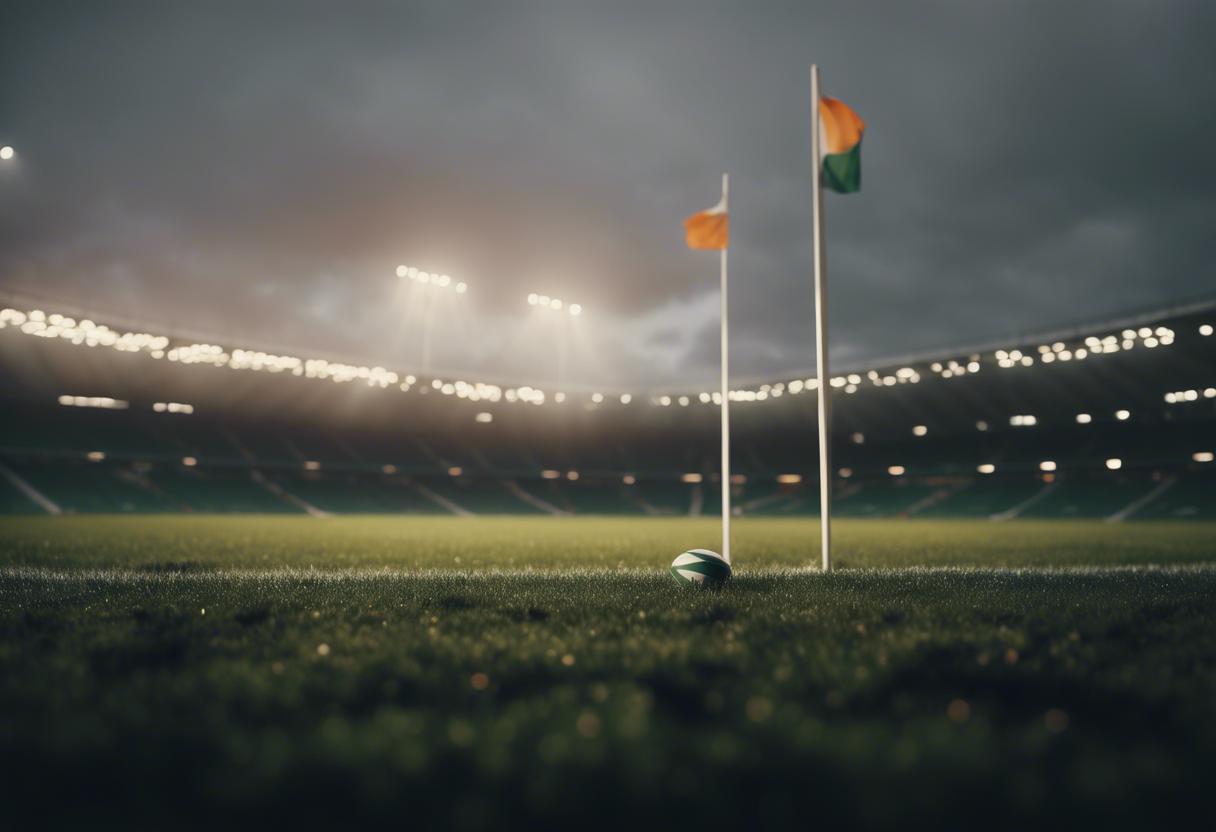In recent times, looking forward to the Republic of Ireland’s football matches could be likened to awaiting a colonoscopy. Following a string of eight consecutive losses, excitement was tempered, even when they managed to defeat Gibraltar – a territory inhabited by more primates than professional athletes. However, the tide seemed to shift following the victorious clash in Finland.
Darragh Maloney optimistically conveyed that the spirits have been uplifted within the Irish team after their triumph over Finland. His showcase of the finest moments from the victory was packed with buoyancy and led to a surge in optimism. The anticipation was high that the single win streak could be extended by the upcoming game against Greece.
Despite the optimism, both Richie Sadlier and Stephen Kelly cautioned about not getting carried away. They reminded everyone that the Greek team just secured a victory at Wembley. Controversially, Lee O’Carsley’s decision to play without a natural striker left some spectators suspicious about his intentions.
Their 3-1 win on Sunday might have their former potential coach, hailed as the new Alf Ramsey. However, attention quickly shifted back to the Irish team’s business. RTÉ made a strategic change, swapping Stephen for Ray Houghton as the co-commentator for the Greece game. Ray chose to refer to Greek players like Vlachodimos, Mavropanos and Hatzidiakos as “the Greek lad”, without bothering to share detailed pieces of their career.
If you think about it, it’s likely Greece’s TV co-commentator wasn’t overly keen on elaborating on the life and careers of Irish players either. Thankfully, Ronnie Whelan took the evening off, eliminating the threat of him foretelling a Greek tragedy even before the game began.
The match was proceeding smoothly until Greece shattered our defiance shortly after the commencement of the second half. Despite our team’s determined attempts to even the score, it was fruitless. Greece managed to score again, effectively halting our victory run.
A pivotal factor for Ireland prior to the next season in November—set to culminate with an encounter against Alf O’Carsley’s Sassenachs at Wembley—might be to foster a rear defence resembling that of Leinster. Stephen Ferris likened the formidable duo of RG Snyman and James Ryan to a “Tomahawk steak and a rib-eye”. Comparatively, Nathan Collins and Liam Scales were likened to minced meat, despite their efforts.
The game at Croke Park on Saturday, with a whopping audience of approximately 82,000, was a remarkable event, even though it was an early-season URC clash. Premier Sports deserves kudos for their lack of exaggerations.
The pre-match montage had modest phrases such as “Ireland’s athletic sanctuary …the birthplace of legends …venerated by the public … a rivalry fuelled by conviction” scrolling across the screen. Meanwhile on RTÉ, Donncha O’Callaghan stirred up a minor uproar, suggesting that those who failed to become good at Gaelic Games would switch to rugby, which resulted in mixed reactions.
At the end of the match, Graham Rowntree had a Hallgrímsson-esque moment, commending his Munster team’s endeavours and courage but harbouring a preference for a more victorious outcome. Donal Lenihan’s heartfelt dedication to the recently deceased Ronnie Dawson, former Irish and Lions captain, was undeniably the highlight of the day; he fondly remembered one of Dawson’s ventures to the southern hemisphere during a pause in the game.
“They embarked on a three-month boat journey, one of the players was nursing a broken leg which had healed by the time they reached their destination and he was ready for the match. Splendid.
Meanwhile, there’s an air of optimism and upliftment for both Ireland and Munster. The adage ‘hope springs eternal’ rings true. Sort of.”

